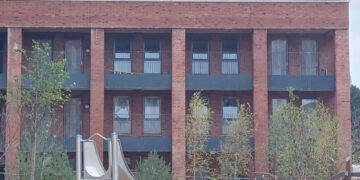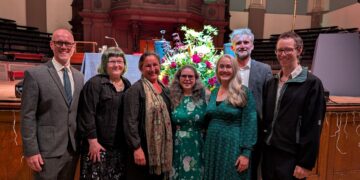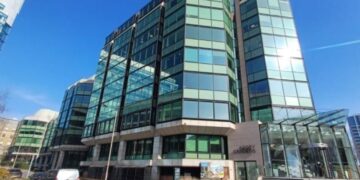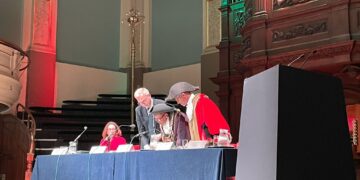LOCAL television service That’s Thames Valley will continue to operate for another 10 years subject to the outcome of a public consultation.
Last week, the government announced its intention to extend licences until 2034, once an Ofcom review of their output has been undertaken, in a bid to ensure they meet audiences’ needs.
When he was culture secretary, Jeremy Hunt announced the plans to allow a network of local stations to be set up across the country from 2013. They include Mustard TV in Norwich, London Live, and the That’s TV brand which has since become the dominant player.
The broadcast via channels 7 or 8 on Freeview, and they are required to show a set number of hours’ worth of local programming on a daily basis.
Under Ofcom’s licensing rules, it must run 15 hours a week of local progamming, of which 10 hours should be broadcast between 6pm and 10.30pm.
From the third year, this requirement is halved.
It must also broadcast 13-and-a-half hours of news a week, including a magazine programme on weekday evenings. This reduces to seven hours a week from the third year onwards.
The rest of the time, it is showing repeats of comedy programmes from the 1970s including The Benny Hill Show, Till Death Do Us Part, and The Kenny Everett Show. It also features music videos from the 1960s and 70s.
A That’s TV Thames Valley Spokesperson said: “Since launching in 2017, That’s TV Thames Valley has become an established part of the local broadcasting market. We are excited about the opportunity to set out our plans to continue to deliver for local viewers.”
However, the stations have not always found it easy to generate stable revenue streams, and therefore fund local content. It is with this in mind the government is running a consultation.
Media minister John Whittingdale said: “Local TV stations from Belfast to Birmingham help to support local journalism, drive the creative economy and foster pride in communities. We want to see this continue, so we’ve set out plans for Ofcom to review all services to ensure they’re well positioned to continue serving local audiences with trusted and distinctive content for years to come.
“Ofcom will review each station’s proposals for the decade ahead to ensure they can maintain their current service and continue making distinctive shows which meet the needs of the local area.”
If a station does not wish to renew its licence, Ofcom will offer the station in what the government says is a competitive process.
The license terms say a station should produce content that provides social and economic benefit to the community, caters to the taste and interests of those they serve and increases the amount of programming made in the area.
Participants will also be invited to submit responses on innovative suggestions relating to how local TV could be used to enhance local journalism and democracy across the UK.
The consultation closes on August 30. Subject to the outcome of consultation, the government plans to move forward with the necessary secondary legislation later this year.























